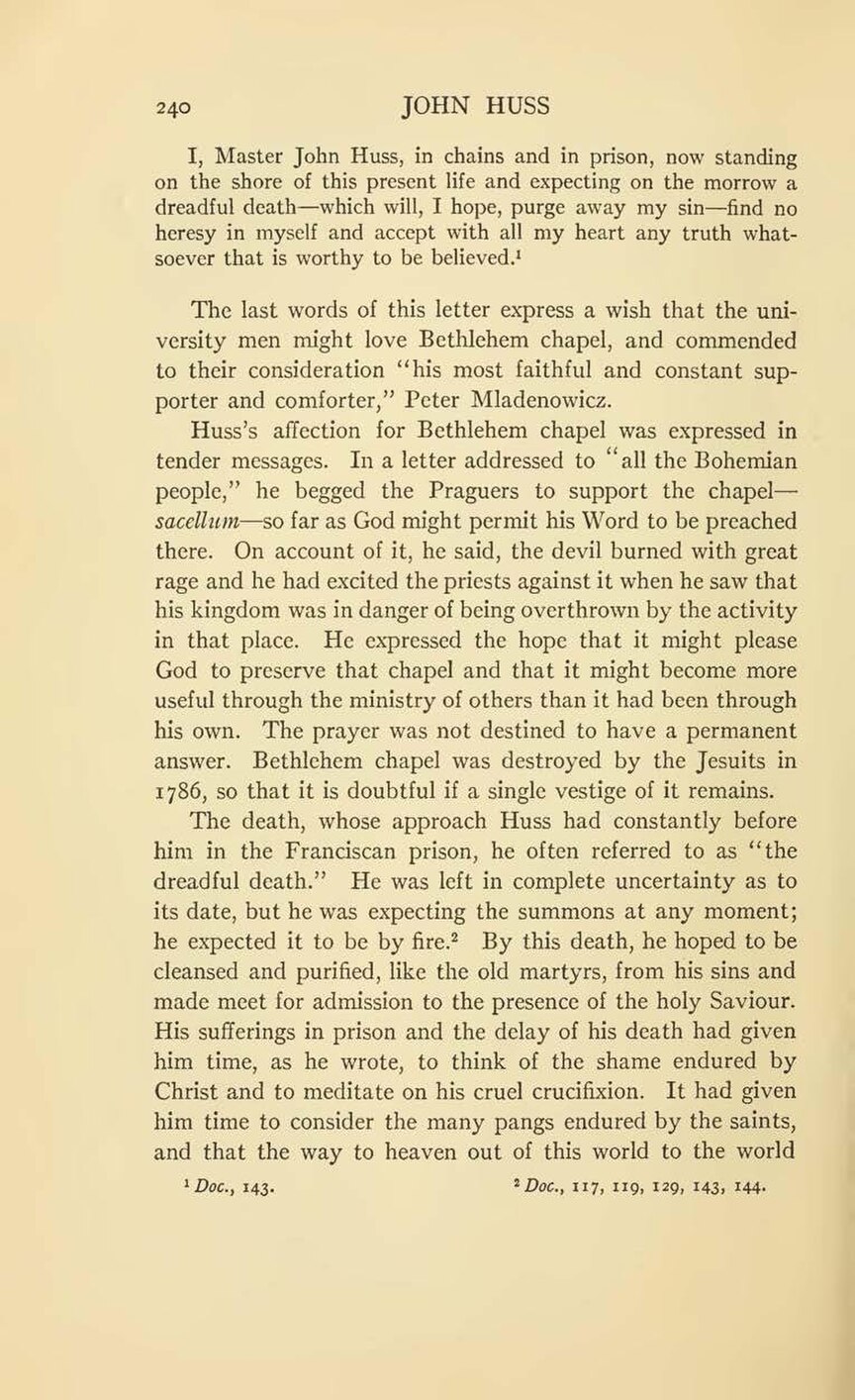I, Master John Huss, in chains and in prison, now standing on the shore of this present life and expecting on the morrow a dreadful death—which will, I hope, purge away my sin—find no heresy in myself and accept with all my heart any truth whatsoever that is worthy to be believed.[1]
The last words of this letter express a wish that the university men might love Bethlehem chapel, and commended to their consideration “his most faithful and constant supporter and comforter,” Peter Mladenowicz.
Huss’s affection for Bethlehem chapel was expressed in tender messages. In a letter addressed to “all the Bohemian people,” he begged the Praguers to support the chapel—sacellum—so far as God might permit his Word to be preached there. On account of it, he said, the devil burned with great rage and he had excited the priests against it when he saw that his kingdom was in danger of being overthrown by the activity in that place. He expressed the hope that it might please God to preserve that chapel and that it might become more useful through the ministry of others than it had been through his own. The prayer was not destined to have a permanent answer. Bethlehem chapel was destroyed by the Jesuits in 1786, so that it is doubtful if a single vestige of it remains.
The death, whose approach Huss had constantly before him in the Franciscan prison, he often referred to as “the dreadful death.” He was left in complete uncertainty as to its date, but he was expecting the summons at any moment; he expected it to be by fire.[2] By this death, he hoped to be cleansed and purified, like the old martyrs, from his sins and made meet for admission to the presence of the holy Saviour. His sufferings in prison and the delay of his death had given him time, as he wrote, to think of the shame endured by Christ and to meditate on his cruel crucifixion. It had given him time to consider the many pangs endured by the saints, and that the way to heaven out of this world to the world
